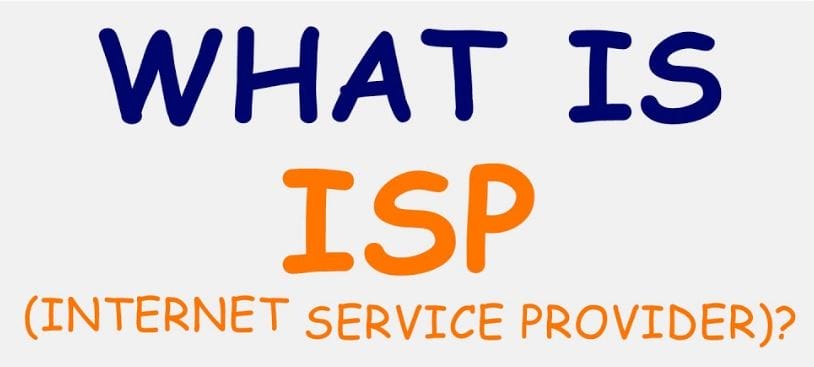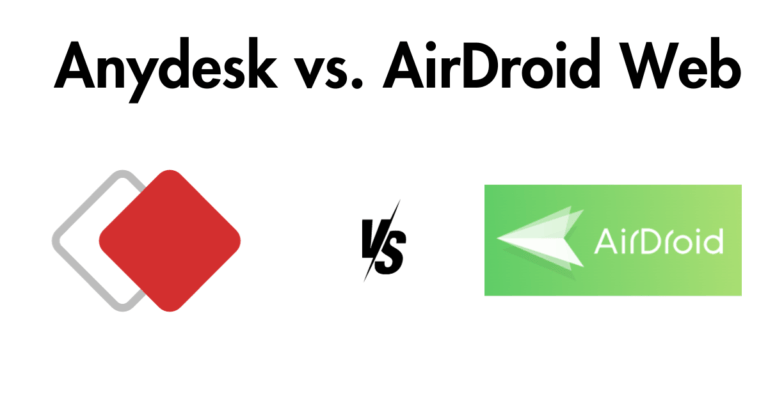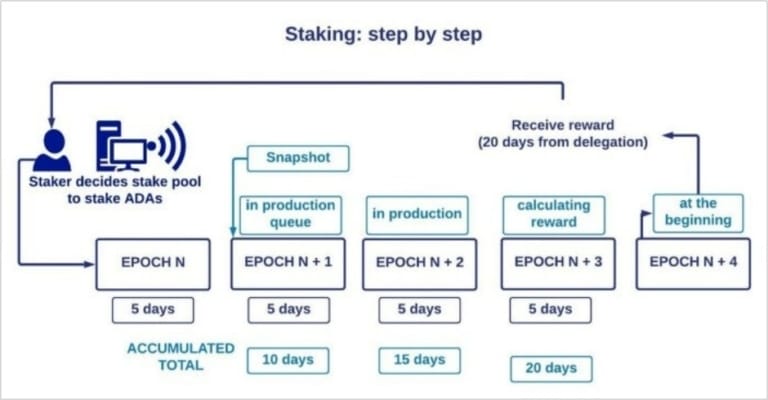
In the era of digital interconnectedness, the term Internet Service Provider (ISP) has taken center stage, becoming an indispensable part of our daily lives. But what exactly is an ISP, and how does it shape our online experiences? In this article, we’ll embark on a journey to unravel the intricacies of ISPs, understanding their significance, functions, various types, and the role they play in connecting us to the digital world.
Understanding Internet Service Providers (ISPs)
Defining ISPs: At its core, an ISP is an entity that offers users access to the vast realm of the internet. It serves as the conduit through which information flows from servers across the globe to your device, enabling you to engage in a multitude of online activities. ISPs facilitate this process by utilizing various technologies to establish and maintain a connection between your device and the vast network of servers that make up the Internet.
Role of ISPs in Online Connectivity: Think of ISPs as the architects of online connectivity. They design, construct, and manage the intricate networks that allow you to communicate, explore, and consume content online. Whether you’re sending an email, streaming a video, or conducting research, your ISP acts as the invisible bridge that bridges the gap between your device and the digital universe.
How ISPs Work
Data Transmission and Routing: When you click a link or enter a web address, a sequence of events is set into motion. Your request is transformed into data packets that travel through a series of connections, hopping between routers and servers until they reach their destination. Your ISP plays a crucial role in transmitting and routing these data packets, ensuring they reach the correct web servers and return with the requested information.
Types of Internet Connections: ISPs offer various types of internet connections, each with its unique characteristics. Broadband connections, such as cable, DSL, and fiber-optic, provide high-speed access suitable for streaming, gaming, and other data-intensive tasks. Wireless connections, often delivered via Wi-Fi or cellular networks, grant you the freedom to connect from different devices and locations.
Different Types of ISPs
Broadband ISPs: Broadband ISPs deliver internet access with impressive speed and reliability. Cable ISPs use the same coaxial cables that bring cable television to your home, while DSL ISPs utilize existing telephone lines. Fiber-optic ISPs offer blazing-fast speeds through optic cables that transmit data using light signals.
Wireless ISPs (WISPs): WISPs leverage wireless technologies to provide internet access. This is particularly useful in areas where traditional wired connections are difficult to establish. Wireless connections are delivered via radio signals, microwave links, or even satellite communication.
Satellite ISPs: Satellite ISPs bring internet access to remote or rural areas where laying physical cables is impractical. They rely on satellites orbiting the Earth to transmit and receive data signals.
Cable ISPs: Cable ISPs provide internet connectivity through the same cables used for cable TV. This hybrid fiber-coaxial technology allows for robust data transmission.
DSL ISPs: DSL ISPs transform your telephone line into a dual-purpose conduit, enabling both voice communication and data transmission. While DSL may not offer the same speed as fiber-optic, it’s widely available and suitable for various online tasks.
Functions of ISPs
Providing IP Addresses: Every device connected to the internet requires a unique identifier known as an IP address. ISPs assign IP addresses dynamically or statically, allowing your device to communicate and be recognized within the vast online network.
Network Management and Bandwidth Allocation: ISPs manage their networks to ensure efficient data flow and optimal performance. They allocate bandwidth to accommodate varying levels of traffic, preventing congestion and maintaining a smooth online experience.
Customer Support: When technical glitches occur, ISPs offer customer support to troubleshoot issues related to connectivity, hardware, and software. This support can range from online resources to direct assistance via phone or chat.
Data Plans and Packages: ISPs offer an array of data plans tailored to different usage patterns. Whether you’re a casual browser, a heavy streamer, or a remote worker, there’s a plan designed to meet your specific needs.
Benefits of Using ISPs
Global Connectivity: ISPs provide you with the means to access information, entertainment, and communication from around the world. In an instant, you can connect with individuals, services, and resources regardless of geographical boundaries.
Enhanced Communication: Through ISPs, you can communicate seamlessly through emails, video calls, and social media platforms. Distance is no longer a barrier to staying connected with loved ones and colleagues.
Information and Education: ISPs grant access to a treasure trove of educational resources, e-learning platforms, and research materials. This democratization of knowledge empowers individuals to learn and grow.
Entertainment Access: With ISPs, you can stream movies, binge-watch your favorite shows, and immerse yourself in a world of digital entertainment. Gaming, music, and videos are at your fingertips.
Online Shopping and Transactions: ISPs enable secure online transactions, revolutionizing the way we shop, pay bills, and manage finances. E-commerce has become an integral part of modern life, facilitated by ISPs.
ISPs and Your Online Experience
Data Privacy and Security: ISPs handle your data traffic, raising concerns about data privacy and security. While ISPs have access to your online activities, HTTPS connections and VPNs can bolster your privacy and protect sensitive information.
Internet Speed and Quality: The speed and quality of your internet connection are influenced by your ISP. Faster speeds translate to quicker downloads, smoother streaming, and enhanced online experiences.
Choosing the Right ISP: Selecting the ideal ISP requires consideration of factors such as coverage, speed, reliability, and customer support. Research and comparison can help you make an informed decision.
Future Trends in ISPs
5G and Faster Wireless Connectivity: The advent of 5G technology promises to revolutionize wireless connectivity, providing lightning-fast speeds and low latency. This could redefine how we connect and consume content on mobile devices.
Fiber Expansion: Fiber-optic technology continues to expand, bringing ultra-high-speed internet to more areas. As fiber networks grow, more users will experience seamless connectivity.
Innovations in Network Management: ISPs are continually exploring new ways to manage network traffic efficiently. This includes technologies like traffic shaping, content delivery networks (CDNs), and adaptive streaming.
FAQs About Internet Service Providers (ISPs):
1. What is an ISP? An ISP, short for Internet Service Provider, is a company or organization that offers users access to the Internet by providing various connection types, technologies, and services.
2. How does an ISP work? ISPs maintain network infrastructure comprising servers, routers, and data transmission equipment. When you connect to the internet, your device communicates with these resources to access online content.
3. What are the different types of ISPs? There are several types of ISPs, including broadband ISPs, wireless ISPs (WISPs), satellite ISPs, cable ISPs, and DSL ISPs, each offering unique ways of delivering internet connectivity.
4. What does a broadband ISP offer? Broadband ISPs provide high-speed internet access through technologies like cable, DSL, and fiber-optic connections, enabling users to stream, browse, and download with ease.
5. What are WISPs and how do they work? Wireless ISPs (WISPs) use wireless technologies like Wi-Fi or microwave links to deliver internet connectivity to users, making them suitable for remote or rural areas.
6. How do satellite ISPs function? Satellite ISPs utilize satellites in Earth’s orbit to transmit and receive internet signals, catering to areas where traditional connections are challenging to establish.
7. What is the role of cable ISPs? Cable ISPs provide internet access using the same coaxial cables used for cable television, offering stable and high-speed connectivity.
8. How do DSL ISPs work? DSL ISPs use existing telephone lines to deliver internet connectivity, allowing users to access the web while using the same line for voice calls.
9. What services do ISPs offer beyond internet access? Some ISPs offer additional services such as email accounts, web hosting, and digital phone services to enhance their offerings.
10. How do ISPs manage network traffic? ISPs manage network traffic by allocating bandwidth and ensuring efficient data flow to maintain a smooth online experience for users.
11. Can I choose my ISP? Yes, you can choose an ISP based on factors like coverage, speed, pricing, and the services they offer in your area.
12. Is the speed of the internet the same for all ISPs? No, internet speeds vary based on the type of connection and the plan you choose. Fiber-optic connections generally offer higher speeds compared to DSL.
13. Is Wi-Fi the same as an ISP? No, Wi-Fi is a wireless technology that enables devices to connect to the internet through a router. An ISP provides the actual internet connection.
14. Can ISPs see my online activities? ISPs have the ability to track your online activities to some extent. However, using secure connections (HTTPS) and virtual private networks (VPNs) can enhance your privacy.
15. Can I switch ISPs if I’m not satisfied with my current one? Yes, you can switch to a different ISP if you’re not satisfied with your current service. Check for availability in your area and consider your needs before making a switch.
16. What is bandwidth throttling? Bandwidth throttling is a practice where an ISP intentionally reduces the speed of your internet connection during certain times or for specific activities to manage network traffic.
17. How can I improve my internet speed with my current ISP? You can try upgrading to a higher-speed plan, optimizing your Wi-Fi network, using a wired connection, and minimizing network congestion during peak usage hours.
18. What is an IP address, and how does my ISP assign it? An IP address is a unique identifier for your device on the internet. Your ISP assigns an IP address dynamically or statically when you connect to their network.
19. Are there any security risks associated with using public Wi-Fi provided by ISPs? Using public Wi-Fi networks may expose your data to security risks. Always use a VPN and ensure your device’s security settings are up to date.
20. What is the future of ISPs? The future of ISPs is expected to involve advancements in technology, such as the widespread adoption of 5G, expansion of fiber-optic networks, and improvements in network management.
21. How does net neutrality affect ISPs? Net neutrality is the principle that ISPs should treat all data on the internet equally. The absence of net neutrality might lead to ISPs favoring certain websites or services over others.
22. Can I get a static IP address from my ISP? Yes, some ISPs offer the option to obtain a static IP address for an additional fee. A static IP can be beneficial for hosting servers or remote access.
23. What are the factors affecting my choice of an ISP? Factors such as coverage area, connection type, speed, reliability, customer support, and pricing are crucial when choosing an ISP.
24. Can ISPs provide services for businesses as well? Yes, many ISPs offer business-specific plans and services that cater to the unique needs of companies, such as dedicated connections and enhanced support.
25. What is data capping by ISPs? Data capping refers to the practice of limiting the amount of data a user can consume within a billing cycle. ISPs often offer plans with different data caps to accommodate varying usage patterns.
26. How do ISPs contribute to digital divide issues? The digital divide refers to the disparity in internet access and usage between different socio-economic groups. ISPs play a role by providing or limiting access based on geographical and economic factors.
27. What is the average downtime for ISP services? ISP downtime can vary based on factors such as maintenance, technical issues, and weather conditions. Most ISPs strive to minimize downtime to ensure continuous service.
28. How can I test the performance of an ISP before committing? Many ISPs offer trial periods or money-back guarantees. Use these options to assess the speed, reliability, and customer support of an ISP before making a long-term commitment.
29. Can I bundle services like TV and phone with my ISP subscription? Yes, many ISPs offer bundle packages that include internet, television, and phone services, allowing you to save money and simplify billing.
30. How can I report technical issues to my ISP? Most ISPs provide customer support channels, including phone, email, chat, and online forms, for reporting technical issues or seeking assistance with connectivity problems.
In a world where connectivity is king, Internet Service Providers reign supreme. These unsung heroes of the digital age facilitate our online interactions, enrich our entertainment experiences, and empower us with knowledge. As you browse the web, stream videos, and engage in virtual conversations, remember that behind the scenes, an ISP is working tirelessly to bring the world to your screen.






